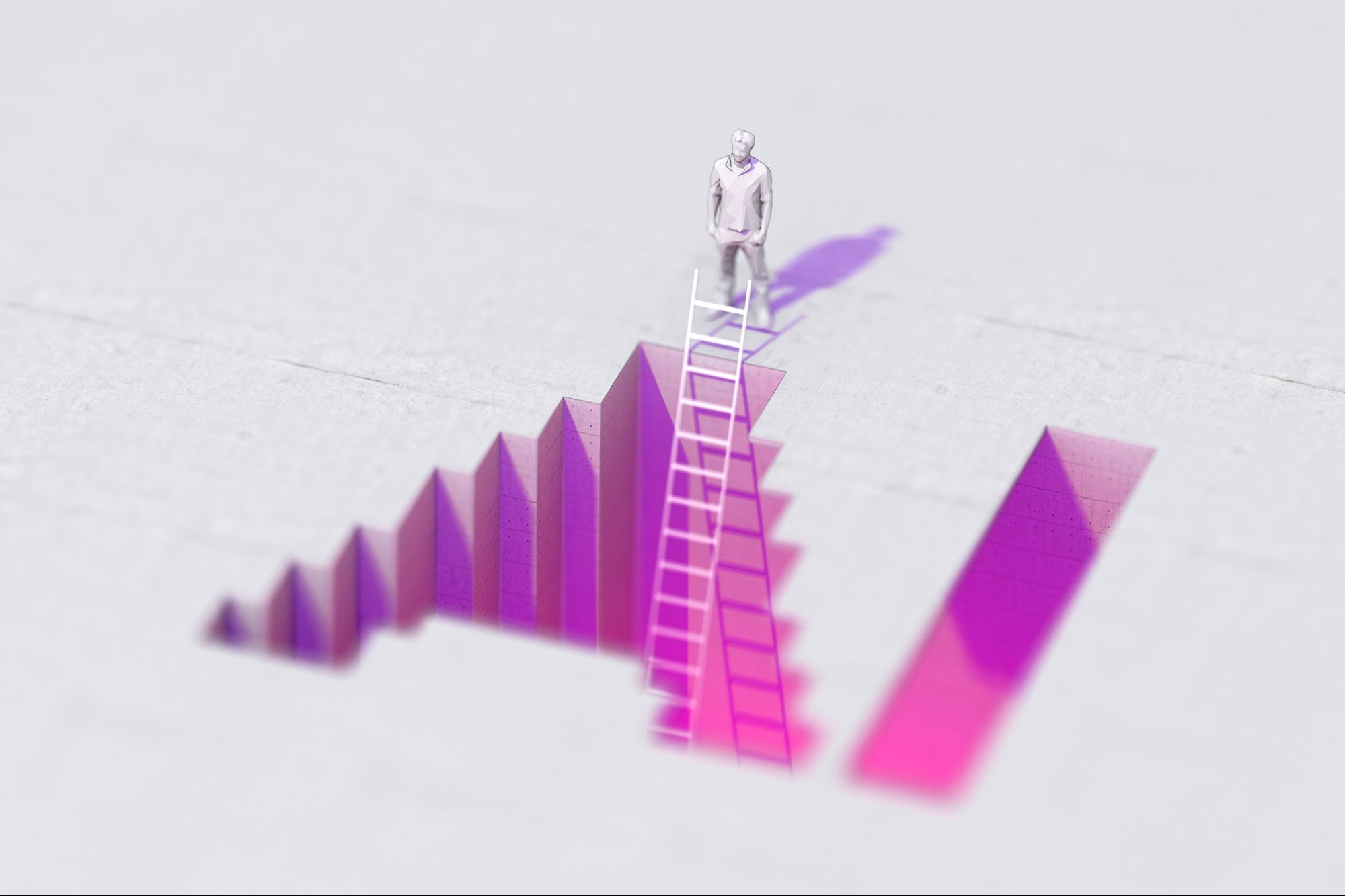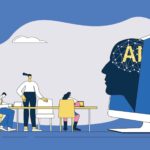You know that when the domain name market also catches, you have a trend mainstream. Registration of AI address will now set you ten times more than typical, as artificial intelligence is no longer a recess. This is included on how you live, search, shop and how you work on a growing amount.
But AI rewriting Google’s 25% code and not surprising that many professionals are surprised, shaping the decision behind what you see online: What happens to my job when robots were good to do??
The truth is that some jobs Will Disappear. But others – based on human creativity, moral logic and adaptation – they are ready to be prosperous.
Related: AI is likely to destroy these 3 businesses in the next 20 years, according to a new report
1. The tilting of the work cannot make AI replica – like creativity and ethics
AI is only good for its training dates. This is excellent when the tasks predictable pattern follows: things like processing, identifying standard forms or offering scripted support. But when a task goes out of training set, the performance decreases.
Therefore, it is difficult to automate jobs involving vagueness, emotional nuisance or complex human decisions. They need skills AI cannot easily replicate – yet.
Take a role in AI ethics. These professionals go beyond the analysis of data to examine its influence, asking serious questions about how it is used and how it affects it. Recognizing prejudice, evaluating social effects, and navigating moral downs, requires life experience, cultural sensitivity and values-based arguments. No training set can completely capture.
Yet despite the increasing importance of AI atheics, its presence in the higher higher course is less. The World Survey of the Digital Education Council has shown that only% of the students know about their organization’s AI use policies, while% 5% of people expressed their desire for more courses of AI literacy.
Or think of a human-machine interaction expert. The designing system that people actually want to use go beyond the function. These include ergonomics, sympathy and expected frustration. For example, frequent stress injuries caused by a poorly designed interface may be invisible for the machine, but it is clearly clear to humans. AI may find out the result; The pain points need to be predicted before a person becomes.
2. Master the art of Prompt Engineering, not just the code
In favor of the development, AI-Asized coding we mark the next evolution of how the programming tasks are abstract and well-organized. Developers have always worked to ease how the code is written. We went through the machine language in high-level programming languages and now we are going to a natural language prompt.
You still need to think seriously about the application architecture, AI cannot troubleshoot the bug and make decisions. Writing prompts has become a new form of programming, where specificity and clarity replace Syntax’s primary challenge as a primary challenge.
Think of AI coding tools as a new compiler: They translate the purpose to the output, but you still need to know what you are asking and why.
Related: “The future of the work is man-concentrated AI. You just need to change a mindset,” Calvin Chu of Eden Strategy Institute
3. Design with sympathy to improve how humans interact with a machine
AI is also creating a new role that combines technical innovation with experts of traditional industries. Most of these hybrid roles depend on the human insight.
In the healthcare, the clinician diagnostic is learning to explain the output in AI Tools. In education, teachers are using adaptive learning software for tailor instruction in real time. In logistics, the planners are taking advantage of predictable analysis to estimate the interruption before hitting the supply chain.
For example, Amazon Mezon has deployed AI-power robots that can separate trailers separately, and innovations depending on the generated AI tools with distribution routes and mapping-enhancing the mapping-enhancing technology and human observation.
What these roles share is a partnership with human decisions and machine efficiency. These roles increase human decisions by connecting with machine-proceeded insights.
4. Step in hybrid roles adding domain skills with AI wrap
If your current role includes high repetitions and little differences, it may be time to develop your skills. This does not mean to leave your fields. This means that identifying your job parts that require decisions, creativity or collaboration – and bending it.
The most valuable skills in the AI era are to solve creative problems, communication, sympathy and adaptation. AI follows the rules, but humans have broken them, rehabilitated them, and discovered new solutions as a whole. Only if machines can imitate the conversation, only people can increase their faith. And the technology never diminishes, learn how to learn is our biggest property.
Transitions may be disturbing to workers in the risk industry. But small steps such as familiar with AI tools related to your area or taking courses in nearby topics can open new, more elastic ways.
Related: Artificial intelligence is a strategy to make yourself unchanged before learning to do your work
Will AI create more employment than remove?
This may, probably, but not evenly and automatically.
Like the previous tech revolution, new industries will increase and others are declining. The significant difference with AI is speed. The shifts are getting faster and the gap between adoptive and loudguards is increasing.
That is why foresight and flexibility are important. Stop asking If AI will change your work and start asking How You want to change it. Plan the intention of changing the automation in the source of speed and the source of meaningful progress.
You know that when the domain name market also catches, you have a trend mainstream. Registration of AI address will now set you ten times more than typical, as artificial intelligence is no longer a recess. This is included on how you live, search, shop and how you work on a growing amount.
But AI rewriting Google’s 25% code and not surprising that many professionals are surprised, shaping the decision behind what you see online: What happens to my job when robots were good to do??
The truth is that some jobs Will Disappear. But others – based on human creativity, moral logic and adaptation – they are ready to be prosperous.










